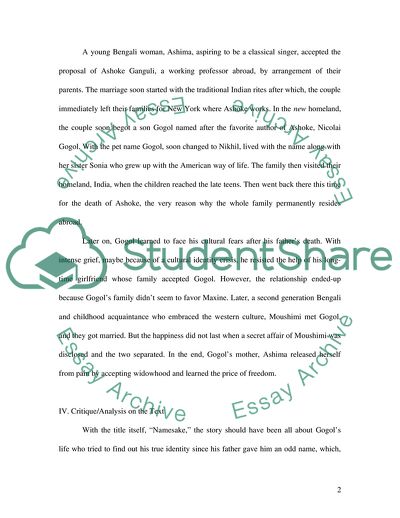Cite this document
(Analysis of the Namesake Movie Review Example | Topics and Well Written Essays - 1500 words, n.d.)
Analysis of the Namesake Movie Review Example | Topics and Well Written Essays - 1500 words. https://studentshare.org/visual-arts-film-studies/1728343-textual-analysis-reader-response
Analysis of the Namesake Movie Review Example | Topics and Well Written Essays - 1500 words. https://studentshare.org/visual-arts-film-studies/1728343-textual-analysis-reader-response
(Analysis of the Namesake Movie Review Example | Topics and Well Written Essays - 1500 Words)
Analysis of the Namesake Movie Review Example | Topics and Well Written Essays - 1500 Words. https://studentshare.org/visual-arts-film-studies/1728343-textual-analysis-reader-response.
Analysis of the Namesake Movie Review Example | Topics and Well Written Essays - 1500 Words. https://studentshare.org/visual-arts-film-studies/1728343-textual-analysis-reader-response.
“Analysis of the Namesake Movie Review Example | Topics and Well Written Essays - 1500 Words”. https://studentshare.org/visual-arts-film-studies/1728343-textual-analysis-reader-response.


